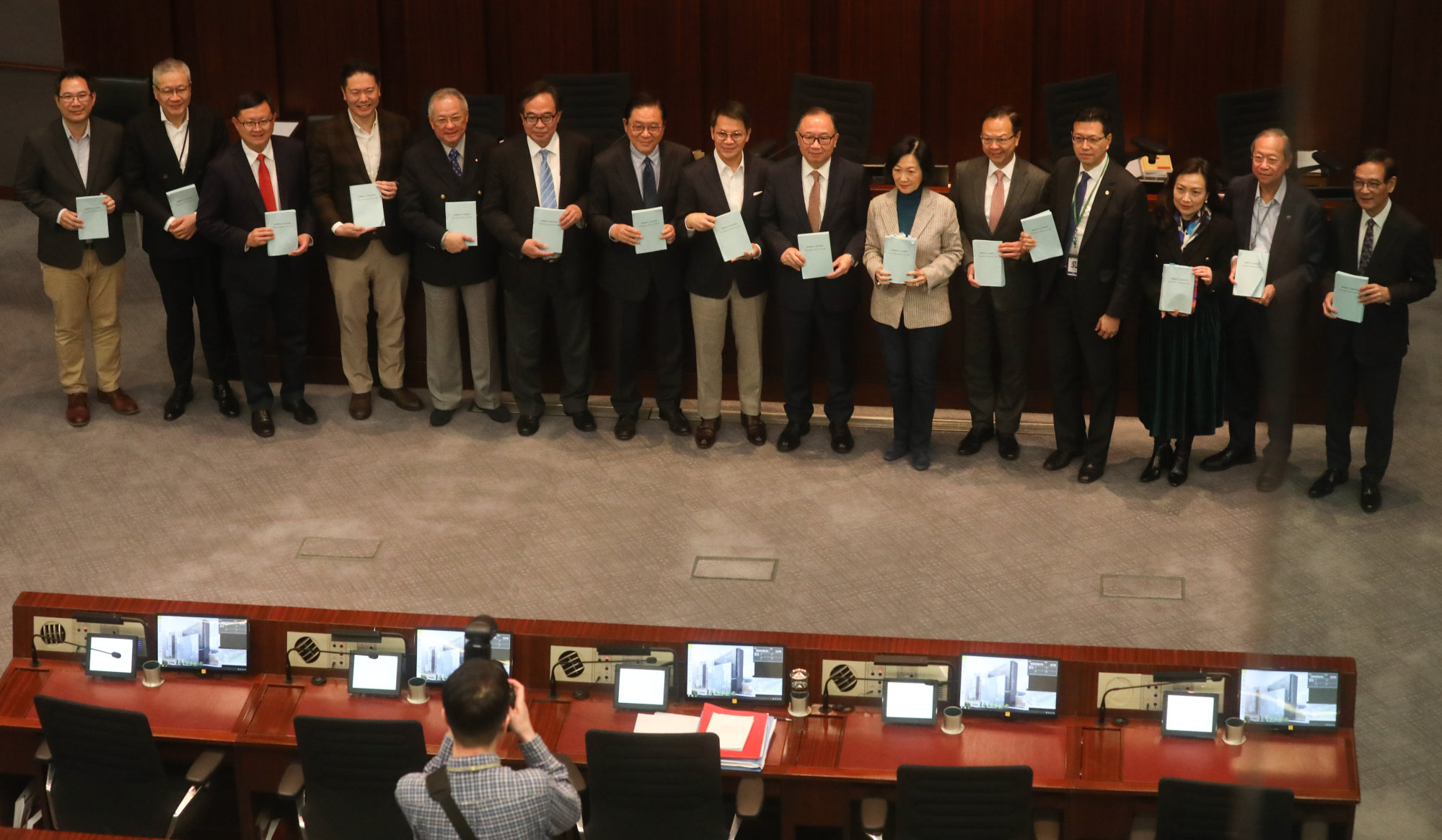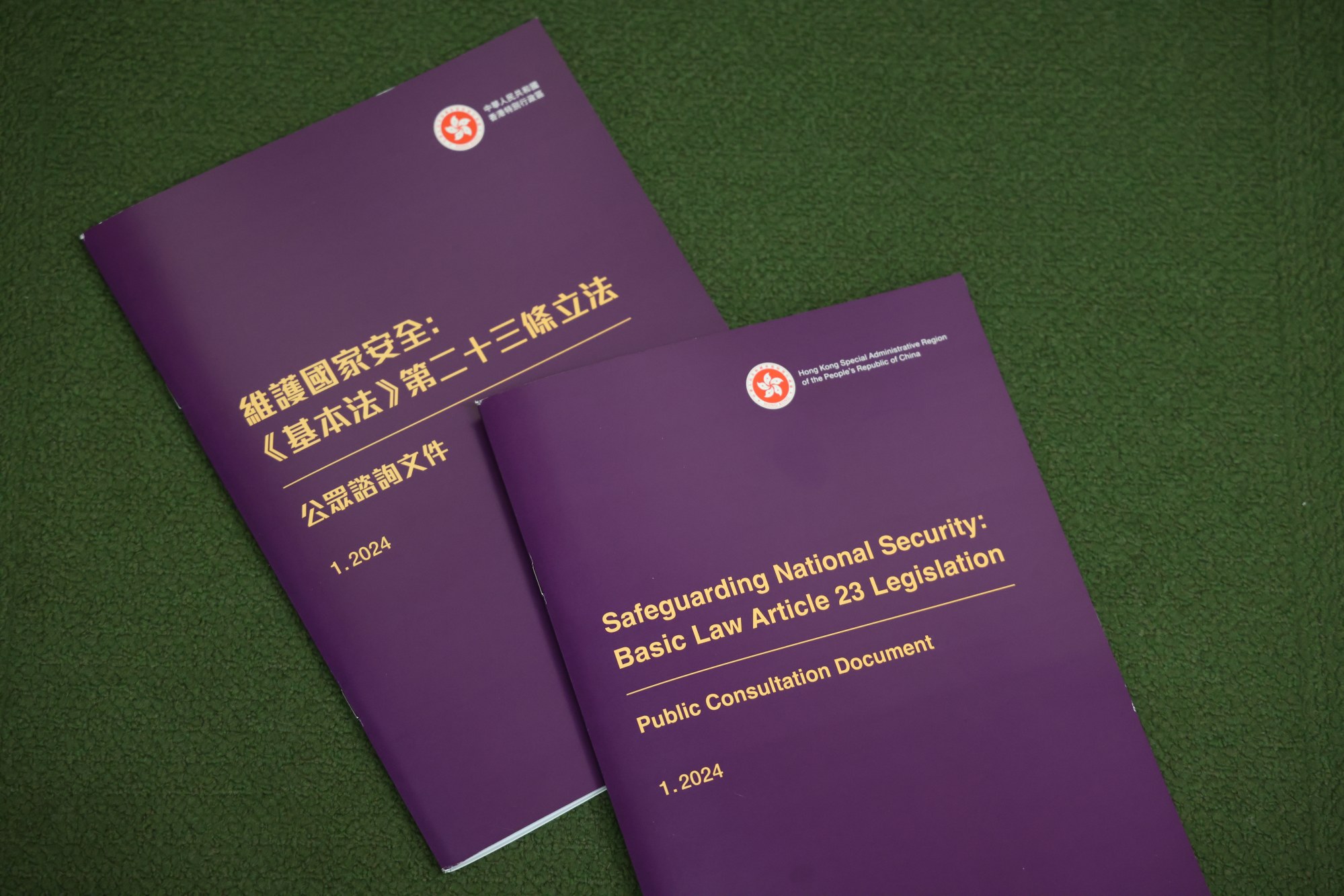
Hong Kong’s Article 23 law: security chief takes aim at local newspaper for ‘misleading’ subheading on new amendment
- Ming Pao runs article with subheading claiming security law clause will allow media curbs, mainland jurisdiction for cases centred on four types of crimes
- ‘It is wrong. The Safeguarding National Security Bill does not mention the media in any of its provisions, nor does it target the media,’ security chief Chris Tang says
Hong Kong’s security chief has slammed a local Chinese-language newspaper for running a “misleading” and “vicious” article subheading on an amendment that authorities introduced to the city’s domestic national security bill.
Secretary for Security Chris Tang Ping-keung took aim at Ming Pao as he spoke before the Legislative Council’s bills committee on Thursday, as a marathon review process for the Safeguarding National Security Bill went into its seventh day.
The minister’s remarks focused on a subheading in the article which said: “[The amendment] covers strengthening media management, four types of crimes [that can see offenders] sent to the mainland.”
The paper has since issued an apology and correction concerning the subheading.
“It is false. It is incorrect. It is wrong. The Safeguarding National Security Bill does not mention the media in any of its provisions, nor does it target the media,” Tang said.
“All crimes under this local legislation are to be handled locally in Hong Kong.”
The new clause at the centre of the incident aims to empower Hong Kong’s leader to introduce subsidiary legislation “for the needs of safeguarding national security” and was among more than 40 government amendments to the Article 23 bill uploaded to Legco’s website after 10pm on Wednesday.

The clause specified that subsidiary legislation could be devised to “better carry into effect” the Beijing-decreed national security law, which was introduced in 2020.
The amendment singled out chapter five of the Beijing-imposed legislation, which covers the mandate of the Office for Safeguarding National Security, a central government agency established in Hong Kong to oversee the law’s implementation.
The duties of the office include taking “necessary measures to strengthen the management of and services for … news agencies of foreign countries” and can “exercise jurisdiction” over national security cases that meet specified conditions, such as “a major and imminent threat to national security”.
The Hong Kong government has said suspects arrested under the domestic security legislation would not be subject to any such special mainland jurisdiction, with the stipulation only applying to offences covered by the Beijing-imposed law.
On Thursday, officials told lawmakers that subsidiary legislation for the proposed Article 23 law could ensure the government had “forward-looking” flexibility in formulating “administrative regulation” and “implementation details” for national security purposes “when something happened” in the future.
Clause-by-clause scrutiny of Hong Kong Article 23 security bill end on day 6
Ming Pao issued a public apology over the article and clarified that those arrested under the proposed law would not be sent to the mainland.
“The subheading was inaccurate and prone to misunderstanding. We hereby correct it and offer our apology,” it wrote.
But Tang warned the newspaper’s earlier characterisation could create misconceptions about the clause.
“I think the subheading [of Ming Pao] is vicious. It makes people think that this bill is aimed at the media and will send criminals to the mainland,” he said.
The security chief acknowledged the newspaper had issued a correction statement, but argued “the damage has been done” and readers could have been already misled by the article.
“I once again strongly condemn Ming Pao to all Hong Kong residents. This report has once again severely damaged Ming Pao’s credibility,” Tang said.

The security chief has sought to bat back against those taking aim at the bill since the government wrapped up its public consultation on February 28. The proposed domestic security legislation is mandated under Article 23 of the Basic Law, the city’s mini-constitution.
Tang earlier this week slammed an editorial from The Washington Post as “misleading and inappropriate remarks”, after the piece described the bill’s clauses as sweeping and deliberately vague.
Authorities have also challenged foreign media outlets Bloomberg News and The Times for their coverage of the proposed law’s review process.

